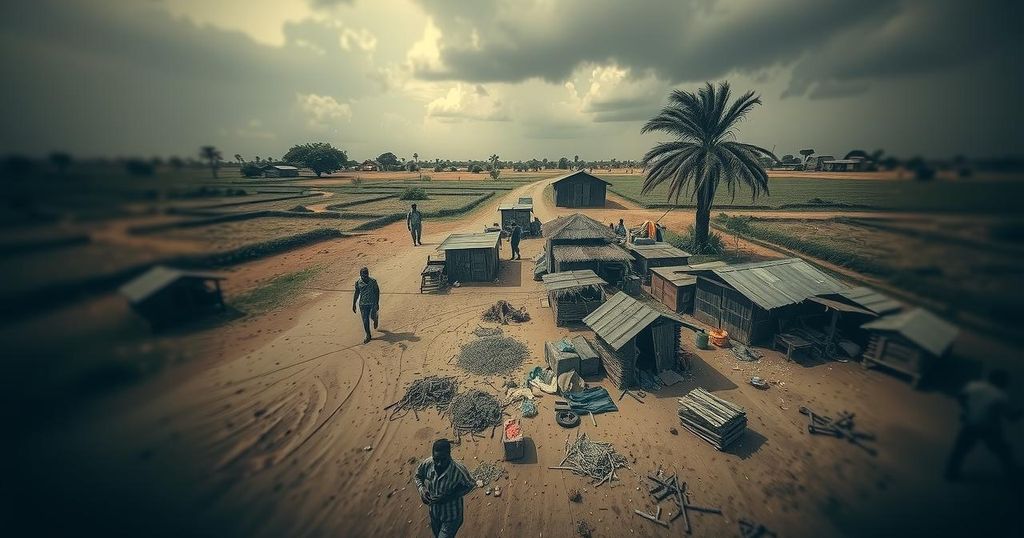Sudan is facing the world’s largest displacement crisis this year, with over 14 million people uprooted by conflict. The United Nations reports staggering instances of sexual violence, particularly towards women and girls, as the humanitarian situation worsens with rampant hunger and disease. The ongoing civil war, driven by power struggles within the military, poses significant threats to regional stability and calls for urgent international response and aid.
The ongoing conflict in Sudan has resulted in unprecedented levels of displacement and widespread sexual violence, as reported by the United Nations. The International Organization for Migration (IOM) has noted that over 14 million individuals have been forced to flee their homes amid escalating violence, disease, and food insecurity. The civil war, which erupted in April 2023 stemming from a power struggle between the Sudanese Armed Forces (SAF) and the Rapid Support Forces (RSF), has led to the largest displacement crisis globally this year. IOM Director-General Amy Pope declared the situation catastrophic and stressed that the majority of the displaced are women and children. The UN’s fact-finding mission has highlighted alarming levels of sexual violence, particularly against women and girls, with paramilitary groups reportedly engaging in abductions and acts of sexual slavery. As the conflict persists, humanitarian conditions have deteriorated perilously, with half of Sudan’s population facing acute hunger, especially in regions such as North Darfur, where famine conditions have emerged. The report from the UN also detailed serious human rights violations by both the military and RSF, including war crimes and cases of ethnic cleansing. With the likelihood of regional destabilization looming, the urgency for international humanitarian assistance remains critical. The UN has echoed calls for scaling up aid efforts to support the beleaguered Sudanese populace who continue to endure unimaginable hardships in the grip of violence and deprivation.
The civil war in Sudan represents a complex interplay of political power struggles, historical grievances, and socio-economic turmoil. Beginning in April 2023, the conflict has primarily unfolded due to a fallout between the SAF and RSF, former allies who orchestrated the removal of President Omar al-Bashir in 2019. Since the resurgence of violence, the implications have been dire; millions have fled as the country faces rampant human rights abuses alongside humanitarian crises characterized by hunger, disease, and sexual violence. This turmoil positions Sudan not only as a national crisis but also threatens broader regional stability, making the international response crucial.
The situation in Sudan is dire, characterized by widespread displacement, rampant sexual violence, and severe humanitarian needs. With millions uprooted, particularly women and children, and acute hunger looming for over half the population, significant international attention and assistance are imperative. The reported violations of human rights and the likelihood of further conflict underlines the urgent necessity for a comprehensive humanitarian strategy to support those affected and restore peace in the region.
Original Source: www.aljazeera.com







